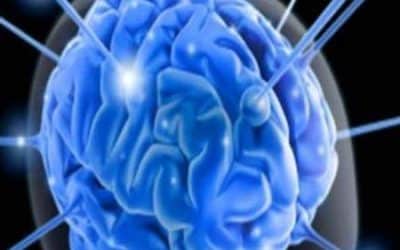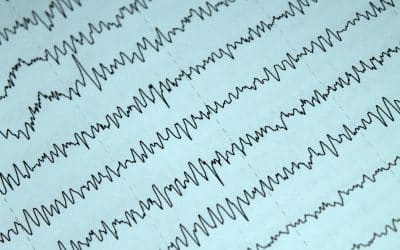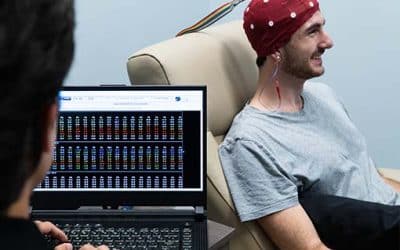Abstract Introduction: Brain/Computer Interaction (BCI) devices are designed to alter neural signals and, thereby, mental activity. This study was a randomized, waitlist (TAU) controlled trial of a BCI, EEG neurofeedback training (NF), in patients with chronic PTSD to...
Neurofeedback
Neurofeedback: A Comprehensive Review on System Design, Methodology and Clinical Applications
Abstract Neurofeedback is a kind of biofeedback, which teaches self-control of brain functions to subjects by measuring brain waves and providing a feedback signal. Neurofeedback usually provides the audio and or video feedback. Positive or negative feedback is...
Efficacy of Neurofeedback Versus Pharmacological Support in Subjects with ADHD
Abstract Behavioral training in neurofeedback has proven to be an essential complement to generalize the effects of pharmacological support in subjects who have attention deficit with hyperactivity disorder (ADHD). Therefore, this investigation attempts to analyze the...
Magnesium and depression
Abstract Magnesium is one of the most important elements in the human body and is involved in a number of biochemical processes crucial for the proper functioning of the cardiovascular, alimentary, endocrine, and osteoarticular systems. It also plays a vital...
Neurofeedback Treatment and Posttraumatic Stress Disorder: Effectiveness of Neurofeedback on Posttraumatic Stress Disorder and the Optimal Choice of Protocol
Abstract Neurofeedback is an alternative, noninvasive approach used in the treatment of a wide range of neuropsychiatric disorders, including posttraumatic stress disorder (PTSD). Many different neurofeedback protocols and methods exist. Likewise, PTSD is a...
Specific effects of EEG based neurofeedback training on memory functions in post-stroke victims
Abstract: Background: Using EEG based neurofeedback (NF), the activity of the brain is modulated directly and, therefore, the cortical substrates of cognitive functions themselves. In the present study, we investigated the ability of stroke patients to control their...
The mechanism of neurofeedback training for treatment of central neuropathic pain in paraplegia: a pilot study
Abstract Background: Central neuropathic pain has a prevalence of 40% in patients with spinal cord injury. Electroencephalography (EEG) studies showed that this type of pain has identifiable signatures, that could potentially be targeted by a neuromodulation therapy....
Quantitative EEG Neurometric Analysis-Guided Neurofeedback Treatment in Dementia: 20 Cases. How Neurometric Analysis Is Important for the Treatment of Dementia and as a Biomarker?
Abstract Dementia is a debilitating degenerative disorder where the sufferer's cognitive abilities decline over time, depending on the type of dementia. The more common types of dementia include Alzheimer's disease and vascular or multi-infarct dementia. In this...
Mitochondria DNA Change and Oxidative Damage in Clinically Stable Patients with Major Depressive Disorder
Abstract Background: To compare alterations of mitochondria DNA (mtDNA) copy number, single nucleotide polymorphisms (SNPs), and oxidative damage of mtDNA in clinically stable patients with major depressive disorder (MDD). Methods: Patients met DSM-IV diagnostic...









